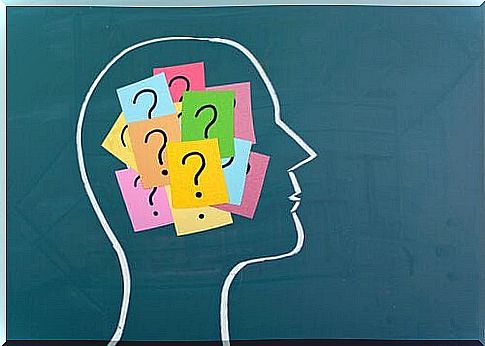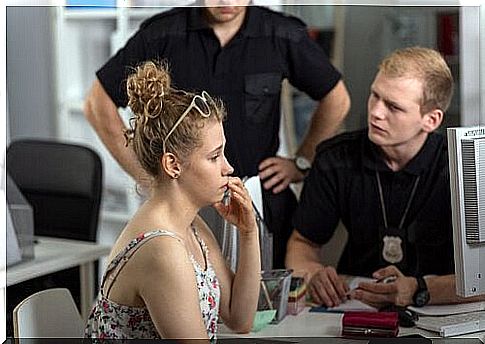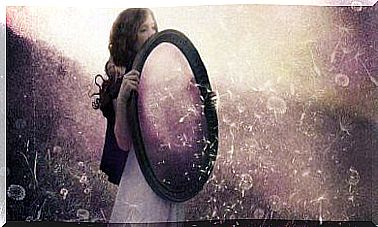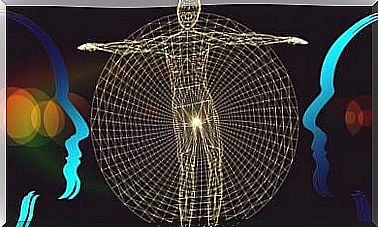Witness Memory: The Quality Of Memory

Memory betrays us. Its content, its memories, are far from being a faithful reconstruction of reality. When we tell something, we do it in a slightly different way each time. In fact, in forensic psychology, witnesses are asked not to tell anyone about the facts, in order not to contaminate memories. It is curious to see how our mind works, and in particular, the memory of witnesses. Can we ever remember something that did not happen?
Witness memory is the body of knowledge and research devoted to establishing the quality of testimony provided by eyewitnesses. Many authors have contributed to this field, so little known in the judicial and forensic field.
Reconstructive hypothesis
Elizabeth Loftus, mathematician and psychologist specializing in this field, assures us that memory can be manipulated and, therefore, it is possible to “introduce” false memories by suggestion. In particular, he considers that the memory of witnesses is reconstructive. Why ?

When someone witnesses a fact, they store two types of information. On the one hand, what was obtained by testifying to this fact and, on the other hand, what was provided subsequently. The two are integrated, giving rise to the phenomenon of reconstruction. The person may come to remember details of the event that they did not really see, and vice versa, they may have forgotten others that they did perceive.
Main factors in the accuracy of a witness’s memory
When a person witnesses a misdemeanor or felony, it is necessary to take into account a series of factors. Whether a memory is considered more or less precise and, consequently, more or less valid, depends on its variability .
Suspicious testimony
Normally, a person records only 20% of what they see. And, in the case of witnesses to an event, this percentage decreases even more. Because they do not expect the occurrence of this event and its brevity.
In addition, at such times occurs the effect known as “blindness to change”: we are then unable to appreciate the changes that occur in a person’s environment. It happens because we don’t pay attention to them; although it is about something relevant, we do not pay attention to the details, but remain in the general (snatching, attack, weapon…). And we make errors of judgment which in the memory of witnesses are usually the key.
Previous expectations
Numerous studies ensure that what we remember is not only limited to what we have experienced directly, but also to what we memorize of our expectations. That is, the knowledge and content that we have gained from other previous experiences related to the event (Bransford & Franks, 1971).
This memory of what we expected to see, Bartlett explains very well with his reconstructive memory. In his research, he has shown that the reproductions made by readers of his famous story The Ghost Wars have diverged from the original version. These distortions refer to oversimplification, such as omitting details and changing them to others inherent in the subject.
Captious questions
Witnesses can change the nature of their memories because of what happens after they observe the crime. In fact, the questions put to witnesses influence – and a lot – what they remember. As a “consolation”, studies tell us that these distortions normally affect peripheral or minor details, so they do not influence the consequences of the testimony.

Individual differences
Analysis of witness memory has shown that children and the elderly are more vulnerable to distortions. Children are less precise, while older people are more convinced of THEIR truth. In other words, they trust the veracity of their false memories more.
Likewise, there is a bias in the age of the witness. When identifying a culprit, the smaller the age difference between the alleged culprit and that of the witness, the more precise the testimony.
Trusted witness
In general, the assertiveness shown by a witness in identifying the culprit is not a good indicator of the accuracy of what the witness is saying. No matter how much detail, the emotion he shows or his ability to convince is not usually synonymous with truthfulness.
Situation factors
In general, the average activation levels are the most suitable for accurate recall. If the subject has peaks in anxiety or stress, reduce the ability to remember.
Likewise, the memory of witnesses confirms that a violent event is memorized with more force than a non-violent event. The effect of focusing the weapon is particularly curious. Witnesses pay so much attention to the assailant’s weapon that their focus is reduced to it, ignoring other details. The violence makes the witnesses have a better memory of the central experience (gun) and less of the peripherals.
So on many occasions we manifest blind faith in our ability to perceive everything that is going on around us. However, we may be unable to detect all the changes that are taking place in our environment. Therefore, our memories are fragile and the memory of witnesses is witness to it.










